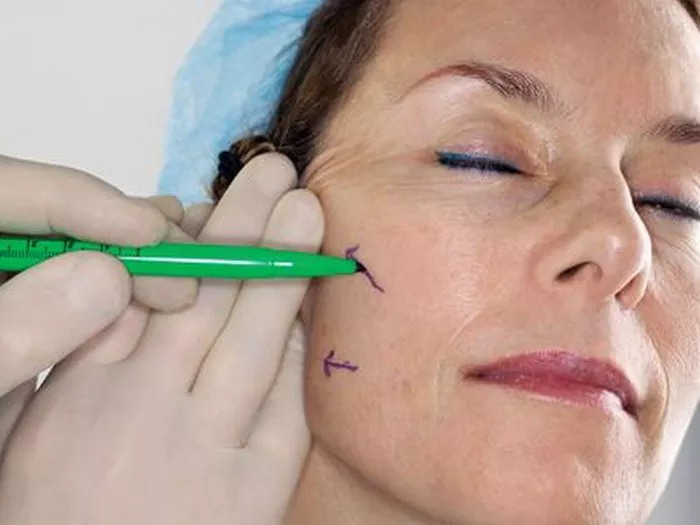Wrinkles are a natural part of the aging process, but you may have noticed that they don’t always look the same. Some days, your wrinkles may appear more pronounced or noticeable than on others. This variation in the appearance of wrinkles can be attributed to a combination of factors, both internal and external. In this article, we will explore why wrinkles can look worse on certain days and provide insights into how you can manage and minimize their appearance.
The Complex Nature of Wrinkles
Before delving into the reasons behind daily fluctuations in wrinkle appearance, it’s essential to understand the complexity of wrinkles. Wrinkles are not solely determined by chronological age; they are influenced by various factors, including genetics, lifestyle choices, and environmental exposures.
Types of Wrinkles:
Fine Lines: These are shallow wrinkles that often result from repetitive facial expressions and are most noticeable around the eyes and mouth.
Dynamic Wrinkles: These wrinkles appear when you make facial expressions and then disappear when your face is at rest. They are usually temporary.
Static Wrinkles: Static wrinkles are present even when your face is at rest. They are deeper and more permanent, often caused by a combination of factors like aging, sun exposure, and smoking.
Now, let’s explore why wrinkles may seem more pronounced on some days.
Daily Factors Influencing Wrinkle Appearance
Hydration Levels: Skin hydration plays a significant role in how wrinkles appear. Dehydrated skin can accentuate the appearance of wrinkles, making them look more pronounced. Factors such as inadequate water intake, alcohol consumption, and weather conditions can contribute to fluctuations in skin hydration.
Sleep Quality: A lack of quality sleep can lead to puffy eyes and tired-looking skin, which can make wrinkles appear more prominent. Aim for a good night’s sleep to keep your skin looking its best.
Diet and Nutrition: Your diet can impact your skin’s health. Consuming foods rich in antioxidants, vitamins, and omega-3 fatty acids can support skin elasticity and reduce the appearance of wrinkles. Conversely, a diet high in processed foods and sugars may contribute to skin aging.
Stress Levels: High stress levels can lead to the release of stress hormones, which can affect the skin’s collagen and elasticity. Chronic stress can make wrinkles appear worse over time.
Weather Conditions: Environmental factors, such as humidity and temperature, can influence how wrinkles look. Dry, cold weather can dehydrate the skin and make wrinkles more noticeable, while hot, humid conditions may temporarily plump the skin.
Skincare Routine: The products you use on your skin can affect wrinkle appearance. A consistent skincare routine that includes moisturizers, sunscreens, and products with active ingredients like retinoids can help minimize the visibility of wrinkles.
Alcohol and Caffeine: Excessive alcohol and caffeine consumption can lead to dehydration, which can emphasize wrinkles. Moderation is key when it comes to these beverages.
Allergies and Irritants: Allergic reactions or skin irritations can cause redness and swelling, which can temporarily make wrinkles look worse. Identifying and avoiding allergens or irritants in your skincare products can help.
Smoking: Smoking is a well-known contributor to premature skin aging. It reduces blood flow to the skin, impairs collagen production, and can cause deeper, more pronounced wrinkles over time.
Sun Exposure: UV radiation from the sun damages collagen and elastin fibers in the skin, leading to the development of wrinkles. Even brief sun exposure without adequate protection can affect wrinkle appearance.
Managing and Minimizing Wrinkle Appearance
While daily fluctuations in wrinkle appearance are normal, there are several steps you can take to manage and minimize the impact of these factors:
Stay Hydrated: Drink plenty of water throughout the day to keep your skin well-hydrated.
Practice Good Skincare: Establish a skincare routine that includes cleansing, moisturizing, and sun protection. Consider using products with anti-aging ingredients like retinoids.
Healthy Diet: Consume a balanced diet rich in fruits, vegetables, and foods containing antioxidants and essential nutrients for skin health.
Manage Stress: Incorporate stress-reduction techniques like meditation, yoga, or mindfulness into your daily routine.
Quality Sleep: Aim for 7-9 hours of quality sleep each night to allow your skin to rejuvenate.
Limit Alcohol and Caffeine: Consume alcohol and caffeine in moderation to avoid dehydrating effects.
Sun Protection: Always use sunscreen with SPF 30 or higher when exposed to the sun, and wear protective clothing, including sunglasses and wide-brimmed hats.
Avoid Smoking: If you smoke, quitting can have a significant positive impact on your skin’s appearance and overall health.
Consult a Professional: If you’re concerned about wrinkles, consult with a dermatologist or skincare specialist. They can recommend treatments such as fillers, Botox, chemical peels, or laser therapy for more significant wrinkle reduction.
Conclusion
Fluctuations in the appearance of wrinkles are normal and can be influenced by a range of factors, including hydration, sleep, diet, and lifestyle choices. While it’s impossible to eliminate wrinkles entirely, adopting a healthy lifestyle, practicing good skincare, and protecting your skin from environmental factors can help minimize their appearance and keep your skin looking its best. Embracing these habits can contribute to a more youthful and radiant complexion in the long run.

